
How Do We Know God is One?
A Philosophical & Theological Perspective
– The oneness of God, in Arabic tawhid, is a central theme in the Qur’an and a message of all of the Prophets, the Qur’an eloquently describes the nature of God and His oneness in the 112th chapter, “Say: He is God, the One. God the Eternal. He begot no one nor was He begotten. No one is comparable to him.”
The concept of oneness in Islam is not limited to God’s singularity and uniqueness. It involves the way human beings should worship God, how they should understand His lordship, and how they should understand God’s names and attributes.
If God does exist what reasons do we have to believe He is one? There are many ways to answer the question referring to God’s singularity and uniqueness, thereby providing a positive case for the oneness of God range from theological to philosophical arguments.
Argument 1: Occam’s Razor
The Qur’an rhetorically asks the question “Did the universe come out of nothing?” Due to the metaphysical and undeniable logic, whatever begins to exist has a cause, and since the universe began to exist, therefore it must have a cause. Infinite regress of causes is impossible. It doesn’t make sense in the real world.
Ockham’s Razor is a philosophical principle attributed to the 14th century logician and Franciscan friar William of Ockham. This principle enjoins “Pluralitas non est ponenda sine necessitate”, in English “Plurality should not be posited without necessity.” In other words the simplest and most comprehensive explanation is the best explanation. A powerful being creating the whole universe is a far more coherent and simple explanation than a plurality of causes.
Argument 2: Logical Argument
Logic necessitates that if there were more than one God who created the universe it would be in chaos and there would not be the level of order we find in the cosmos.
Argument 3: Conceptual Differentiation
What makes us appreciate difference and duality? How do we differentiate between two people walking in the street? The answer lies in what is called conceptual differentiation. These concepts include space, distance, form, and physical features. In absence of these concepts we can’t perceive the two objects or any objects at all.
The cause of the universe must be outside the universe. If the cause was part of the universe it would mean that the universe created itself. This is absurd as it would necessitate the universe to exist and not exist at the same time!
If there were no cause for the universe then that would mean the universe, in the words of Bertrand Russell, “Is just there and that’s all”. In other words it would mean the universe is infinite, however this cannot be the case, as mentioned above the universe began to exist. Therefore a single independent cause is rationally necessary to explain the fact that the universe began to exist and that a plurality of causes cannot be perceived due to the absence of conceptual differentiators.
Argument 4: Uniqueness
The cause of the universe must be unique, as the Qur’an says “There is nothing like Him”.
If the cause of the universe was not unique that would mean there are some similarities between the cause of the universe and the universe itself. Why can’t the cause of the universe resemble the universe? The answer is straight forward; this cause must be immaterial because it created the sum of all material – which is the universe itself – and another principle that supports this is the 1st law of thermodynamics, it states “Energy cannot be created or destroyed”, simply put energy (in other words matter) cannot create itself.
The cause of the universe must be immaterial and therefore unique. How does this relate to the oneness of God? Well if there were more than one cause for the universe that would mean they are not unique anymore.
Argument 5: Revelation
How do you know God has announced himself to mankind and in what form is this revelation?There are only two possible ways to find out: externally and internally.
1. Internally
Finding out about God internally is implausible and would lead to fallacies because human beings are different. They have, what Psychologists call, “individual differences”, these individual differences include DNA, experiences, social context, intellectual and emotional capacities, gender differences, amongst many more.
These differences play a role in your ability to internalise via introspection or intuition, therefore the results of introspection or relying on your intuition will differ. From a historical point of view, since the ancient world 6000 BCE, there are records of approximately 3,700 different names and concepts for God!
2. Externally
It is obvious that the human being is not eternal, unique and powerful, therefore the human being could not conceptualise who God is. God would have to tell you via external revelation.
From an Islamic perspective this external communication is the Qur’an as it is the only text to claim to have come from God that fits the criteria for a divine text, these criteria include,
- Consistence with the rational and intuitive conclusion on God
For example if a book says God is an Elephant with 40 arms you could safely assume that this book is not from God, as God must be external to the universe.
- Internally and externally consistence
If the book says that the universe is only 6,000 years old then that would be an external inconsistency as reality as we know it s that the universe is older the 6,000 years.
- It must have signposts to transcendence
It must have evidence to show that it is from God. In the case of the Qur’an, supernatural explanations are the best explanation. Some of these signposts include:
A.The linguistic and literary inimitability
B.There are historical accounts that could not have been known by man at the time of revelation
C.There are some descriptions of natural phenomena that could not have been known by man at the time of revelation
Conclusion
The only way to know what God has announced to mankind is via external revelation, and this revelation can be proven to be the Qur’an – the Qur’an says “Know that your Lord God is one”.
Related Books
-

The Pillars of Faith
Faith means to believe in Allāh, His angels, His books, His messengers, the Last Day, and the divine Decree, both the good and bad thereof. ...
Edition: 1
-

Islam is
We present Islam as it is, without sugarcoating and we allow it to stand on its own merits. There is only one Islam and only one example of how it ...
Edition: 1
-

Fiqh Essentials
We hope that instead of being overwhelmed by his new and blessed way of life, the Muslim beginner will find this an easy guide that can best be sup...
Edition: 1
-

The Path to Prayer
It is to be noted as well that in Islam the establishment of regular prayer(iqamatus-salah) is emphasized. the Quran dose not tell us, “Pray&...
Edition: 1
-

Why I Choose Islam?
O seeker of truth, if you really seek the truth put aside all preconceived notions, and open your heart. Do not let others judge or make a decision...
Edition: 1
-
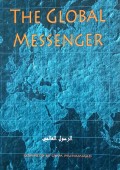
The Global Messenger
This book introduces Muhammad (Peace and blessings be upon him), the Prophet of Islam, with a glimpse of his life, character, accomplishments and t...
Edition: 1
-

STATUS OF WOMEN IN ISLAM
The status of women in society is neither a new issue nor is it a fully settled one. The position of Islam on this issue has been among the ...
Edition: 1
-
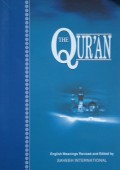
THE QURAN (English Translation)
The Qur’an is the literal word of God, The Almighty (Allah in Arabic), revealed to Prophet Muhammad (peace be upon him) through the Angel Gabriel...
Edition: 1
-
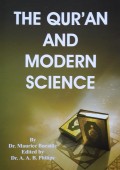
THE QUR’AN AND MODERN SCIENCE
This booklet by Maurice Bucaille has been in circulation for the past nineteen years and has been a very effective tool in presenting Islam to non-...
Edition: 1
-

Muslim Christian Dialogue
This booklet contains dialogues that the author had made with members of the Christian clergy and laity. The discussions were polite, pleasant, fri...
Edition: 1
-

JUST ONE MESSAGE!
Just One Message is a book to those who seek the truth sincerely, honestly, and open-mindedly. After the creation of Adam, just one original messag...
Edition: 1
-

Clear Your Doubts About Islam
Information is a source of assurance and a bridge to tolerance and understanding. This book provides concise yet comprehensive answers to questions...
Edition: 1
-
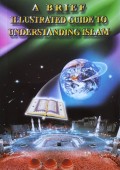
A BRIEF ILLUSTRATED GUIDE TO UNDERSTANDING ISLAM
This Islamic guide is for non-Muslims who would like to understand Islam, Muslims (Moslems), and the Holy Quran (Koran). It is rich in information,...
Edition: 1
-
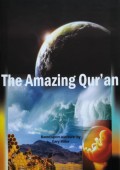
The Amazing Qur’an
What’s amazing about the Quran? One would expect that Muslims consider it so, but surprisingly, others even some opponents of Islam, have a...
Edition: 1
Related Articles
-
Teachings of Prophet Muhammad (PBUH)
QUARANTINE is a Prophetic ﷺ advice.* “Run away from the leper (the one with contagious ailment) as you would run away from a lion.” (Bukhari Volume 7, Book 71, Number 608) SOCIAL DI...
-
My Hijab is My Freedom!
Hijab, or head piece…or head cover. Or scarf, or headscarf- they all pretty much refer to the same thing: the head covering of a Muslim woman. The word is originally Arabic, and is literally defined as “Cover” or “veil”.
-
Who deserves to be Worshipped Alone?
Many people “discontent with God” because of the practices of the Church in medieval Europe and because of the claims of “god dwelling in a son”, and that “everyone is born with an original sin”. They “escaped” into worshipping a n...
-
The True God is Allah.
The True God is Allah, And Man is in Need of Him. There are those who do not believe in Allaah as the Only True God and there are those who believe that there is a Creator. Those who believe that there is a Creator believes that th...
-
THE CREATION IS IN NEED OF ALLAH
Man always looks for what benefits him and what protects him from harm. To accomplish this, man must be able to realise what is harmful. He must then know whom he should need, trust, and love so that he can attain what is beneficial as well as to ...
-
PURPOSE OF LIFE
What Does Islam Say About Our Life’s Purpose? Have you ever asked yourself following questions?
-
You’re Not Catholic? Why?
Questions from a “Catholic”? I am Jonabeth from Philippines, I am a roman catholic. I have some questions and I hope u can help me to open my mind: Is it true that Jesus was crucified? Is it true...
-
The Quran on Human Embryonic Development
In the Holy Quran, God speaks about the stages of man’s embryonic development in such minute detail, much of which was unknown to scientists until only recently. It mentions the first stages of life after conception, the second stage of life...
-
Let There Be No Compulsion in Religion
One of the fundamental truths established by the sacred texts is that no one can be compelled to accept Islam. It is the duty of Muslims to establish the proof of Islam to the people so that truth can be made clear from falsehood. After that, w...
-
How Do We Know God is One?
A Philosophical & Theological Perspective – The oneness of God, in Arabic tawhid, is a central theme in the Qur’an and a message of all of the Prophets, the Qur’an eloquently ...
-
Denying God, Denying Reality
Self-Evident Truths Does God exist? If God exists, what evidence is there to support this belief? I believe we have many good arguments which support a belief in God. We don’t require any evidence for His existence....
-
Scientific Miracles in Brief
Why Islam is the true religion of God. Most religions are based on books claimed by their followers to be divinely inspired, without any proof. Islam is based upon reason and proof. There are clear signs that the book of Islam, the Quran,...
-
The Challenge of the Quran
The Quranic challenge to produce a work similar to it, and the inability of its contemporaries to meet it. The Quran is not only unique in the way in which it presents its subject matter, but it is also unique in t...
-
Islam & Christianity
The Bible Christianity, which claims to have nearly 1.2 billion adherents all over the world, is a Semitic religion. It owes its name to Jesus Christ (peace be on him) and the Holy Bible is the sacred scripture of the Ch...
-
Islam & Buddhism
Historical criticism has proved that the original teachings of Buddha can never be known. It seems that Gautama Buddha’s teachings were memorized by his disciples. After Buddha’s death a council was held at Rajagaha so that the ...
-
Islam & Atheism
God Existence – Atheists might assert that they don’t acknowledge the existence of God. Undeniably there are times — whether during the agonising days of a lingering illness, the seemingly eternal moments of a v...












































